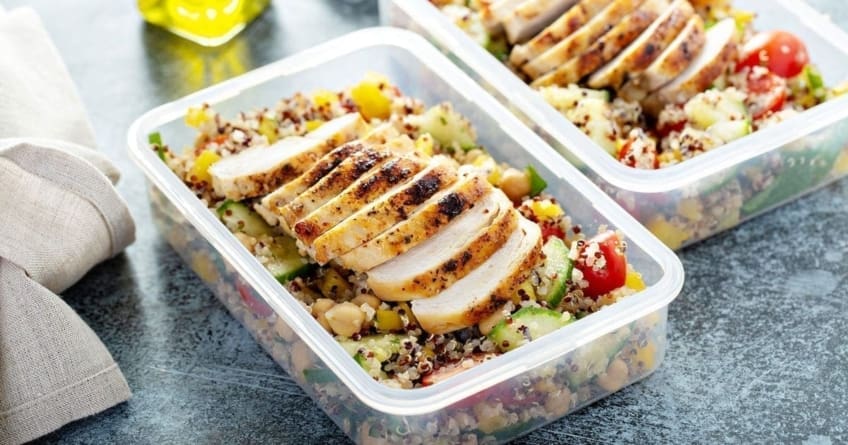
Eating healthy foods is important to make sure your body gets the nutrients it needs every day. It is also important to stay within your daily calorie goal, whether that’s designed to help you lose, gain, or maintain your current weight. Eating healthy foods will help to lower your risk for chronic disease, including diabetes, some cancers, heart disease, high blood pressure, stroke, and many others. Using MyPlate can help you achieve your health goals and maybe extend your longevity.
By planning out your meals ahead of time, it is more likely that you’ll make healthy food choices rather than choosing food for convenience instead. The U.S. Department of Agriculture has designed an easy tool to help people eat healthy at every age. MyPlate.gov is a consumer-facing website that allows people to see what healthy eating looks like, how much they should eat, and what foods they should and should not eat. MyPlate is accessible through you laptop, mobile phone, Alexa and print handouts.
Path to well being
Before you go to the grocery store, it can be helpful to sit down and consider what you’ll need to make a healthy eating plan.
Eating healthy has only three simple steps, according to MyPlate:
- Meet nutritional needs primarily from foods and beverages.
- Choose a variety of options from each food group.
- Pay attention to portion size.
When shopping, look for recipes that are easy to make in bulk, especially if you’d like to plan out and make your meals in advance. Many people find that cooking and packaging their meals on the weekend for the coming week helps keep them committed to healthy eating.
Depending on your taste preferences, your menu should include:
- Plenty of vegetables and fruits.A general rule of thumb is that veggies and fruits should take up half of your plate.
- Whole grains.At least half of your grains should be whole grains, which provide more fiber and nutrients than refined grains. You can look at the labels for terms like “100% whole wheat” or “100% whole grain.”
- Fat-free or low-fat dairy productsthat contain calcium and other essential nutrients but have fewer calories.
- Lean meatsand other sources of protein, such as beans, eggs, and nuts.
- Limited saturated and trans fats, sodium, or added sugars.If you are using ingredients such as mayonnaise, butter, or salad dressing while cooking, try those that are lower in calories and total, saturated, and trans fats.
Be sure to factor in snacks and meals that you can eat on the go in your grocery trip as well. This might include fruits, washed and chopped vegetables, yogurt, low-fat cheeses, whole-grain crackers or breads, and protein choices like nuts or low-fat turkey slices.
Also, consider buying a week’s worth of food containers. This way, if you prep meals a week at a time, you’ll have an organized way to store them for grab-and-go.
Things to consider
Making healthy food choices is important for your body no matter how much you weigh. It’s not just about the number on the scale. However, if you are working to slim your waistline, your diet will be very important.
To lose weight, you usually need to reduce the number of calories you consume and increase your physical activity, or the calories you burn. The National Institutes of Health says that if you want to lose 1-1.5 pounds per week, your total daily calorie intake should reduce by 500-750 calories. This does not mean you should cut out all food. You must eat to remain healthy.
For most women, eating 1,200-1,500 calories each day can help you to lose weight safely. For men or for women who weigh more or exercise regularly, an eating plan that contains 1,500-1,800 calories per day can help you to lose weight safely.
Do not follow diets with an intake of fewer than 800 calories per day without first speaking to your doctor. They will want to monitor you if this does end up being a necessity for your health.
Questions to ask your doctor
- How do I know if I’m eating too many calories a day for my body type?
- Am I at a healthy weight? If not, how much do I need to lose or gain?
- Are there any specific nutrients I’m lacking that I should focus on in my meal plans?
- How often is it okay to splurge on unhealthy meals, like fast food?
![]()
Copyright © American Academy of Family Physicians
This information provides a general overview and may not apply to everyone. Talk to your family doctor to find out if this information applies to you and to get more information on this subject.







